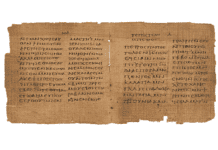However, Bishop Daniel Wandabula of the Kenya-Ethiopia conference (to which FUMC Moheto belongs) cannot agree with Mwita on this point. Also speaking to UM News, Wandabula says “reconciliation for inclusion of LGBTQIA is not for sub-Saharan Africa, especially Kenya, Uganda and Southern Sudan.” According to Wndabula, UM churches in Africa have bigger problems to address, such as “reconciliation and inclusion of discriminated and economically oppressed peoples; oppressed and abused women, as well as hundreds sold into slavery to the Middle East.”
In addition to being out of step with other churches in the UMC’s Central Conference and the Kenya-Ethiopia conference specifically, FUMC Moheto is also going against the grain of Kenyan culture and politics. A high court recently upheld a law dating to Kenya’s colonial era that makes gay sex punishable by up to 14 years in prison.
Mwita anticipates the need to go against the UMC’s Book of Discipline when the Traditional Plan takes effect in January. He is undeterred, though, in what he sees as a just cause. “I personally would not stand to see our church being a tool of oppression to the children of God. We have voted not to obey the Book of Discipline on matters that separate us but to observe the three simple rules: do no harm, do good, and stay in relationship with our God. I know as a church we have taken a step which may make some clergy in Moheto FUMC face charges and be discontinued, but I am prepared and I will not turn back.”
FUMC Moheto’s Welcoming Statement is included below:
We proclaim that all people are created in the image of God and affirm that each person, regardless of age, economic status, faith history, tribe, ethnicity, gender, mental or physical ability, marital status, sexual orientation, or gender identification, is a beloved child of God and worthy of God’s love and grace.
We support the full participation of all persons in every phase of church life.
Through education and informal discussion, we will strive to better understand those who are different from ourselves to bring about a more accepting society.
We recognize ourselves to be a Reconciling Congregation within The Kenya-Ethiopia Annual Conference and choose to officially associate ourselves with the Reconciling Ministries Network within the United Methodist Church.
We see this network as a sign of hope and through this association offer our witness to other congregations within our denomination to foster the spirit of reconciliation and movement toward inclusiveness.











